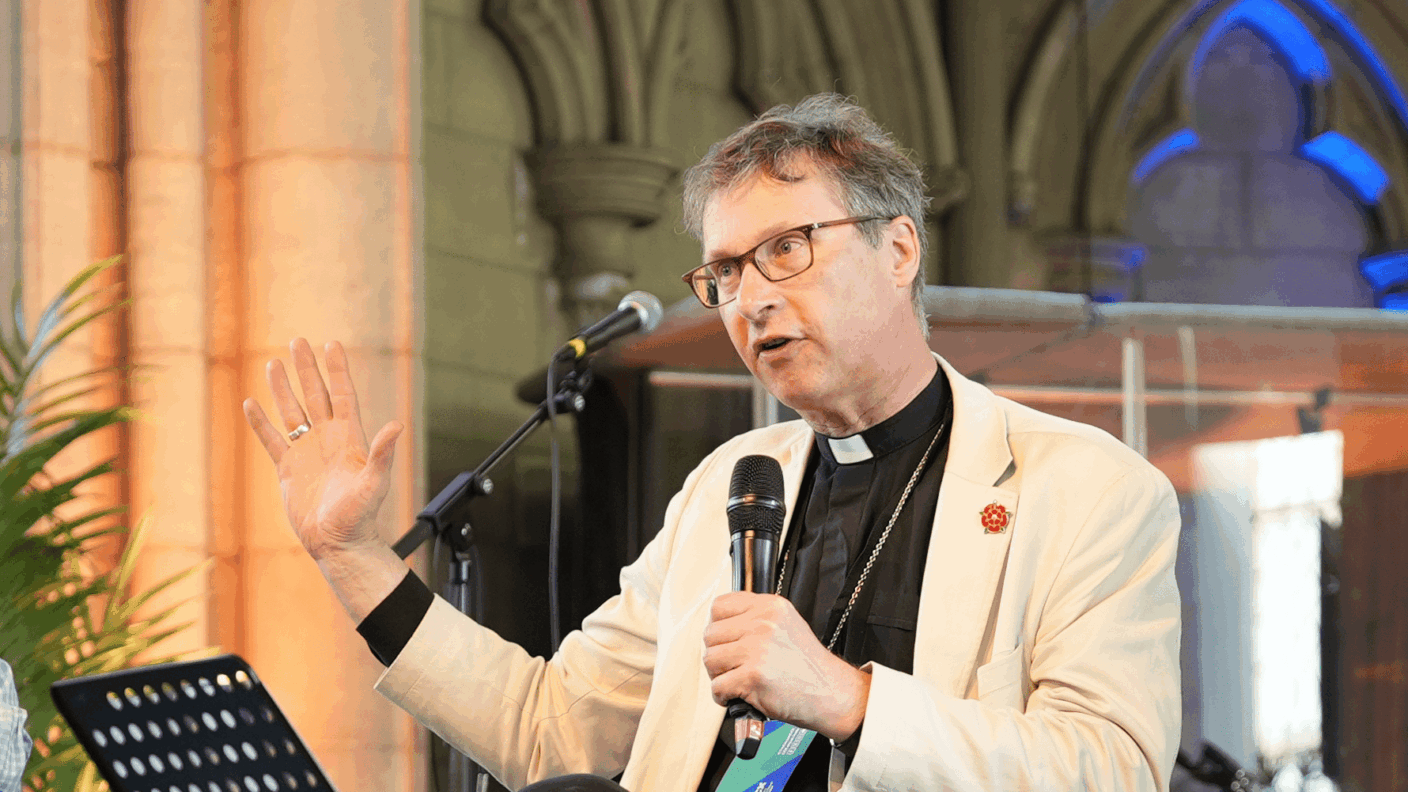Read / Feature
Missionary disciples: Finding yourself in Christ
Philip North, Bishop of Blackburn, calls us to begin our formation not by looking to ourselves, but to Jesus.
Philip North, Bishop of Blackburn, calls us to begin our formation not by looking to ourselves, but to Jesus.

If you want to make a fortune, write a self-help book. In a confused world, people seem to have an endless appetite for books that give quick-fix answers to their most pressing problems. How to eliminate rush. How to find happiness. How to think positive thoughts. How to have a better career. These books all feed the presumption that most people make, which is that the secret of a better life lies within oneself.
Multiply 2025 is focusing on multiplying missionary disciples, and it would be easy to make the mistake of thinking of discipleship as a branch of the self-help industry. It can sometimes feel that spirituality is about knowing yourself better, that prayer is about space and time to oneself, that forgiveness is about personal reassurance and that the purpose of worship is what we ourselves ‘get out of it.’
But for the Christian, the whole idea of self-help is something we struggle with. One of the most powerful collects in the Book of Common Prayer begins, ‘Almighty God, thou seest that we have no power of ourselves to help ourselves.’ It is inspired by Romans 7 where Paul reflects on his own inability to live the life he wants to live and concludes, ‘Now if I do what I do not want to do, it is no longer I who do it, but it is sin living in me that does it.’ (Romans 7:20).
As Christians, the whole idea that we can help ourselves is delusional. When we look within ourselves all we find is sin and absurdity. To help ourselves we need to look outside of ourselves, to Jesus.
So for the Christian, our formation as disciples is not primarily about ourselves at all. It is about Jesus. Its purpose is to create the place where Jesus can find us. It is about offering up our own lives to be absorbed and reshaped by his life. If you want to ‘find yourself,’ start by giving yourself away to him who has given everything to you. Because your identity is not your own at all. It is his.
A discipleship that is radically orientated not on self but on Christ achieves two things. First, it prepares us for the world.
I have always been struck by the fact that the most effective and impactful renewal movements in Christian history have been characterised by small groups of people seeking ever deeper conversion to Christ. Because the more we make ourselves available to him, the more we make ourselves available to the world.
As we turn ever more deeply to Christ, so our faces turn to the world in order to transform it in his name. In patterning our lives on Christ, we develop the zeal for souls that enables effective faith-sharing, we grow in the burning desire for justice that inspires social action and we develop such a sense of Christ’s self-giving love that we want to live not for self but for others.
And second, a discipleship that seeks not self but Jesus prepares us for heaven.
I once ministered to a faithful elderly woman from a housing estate in Hartlepool. The older she got, the more she prayed. In the end, the moment of her death passed almost unnoticed. She had just slipped seamlessly from the prayer of the Church on earth to the eternal worship of heaven.
At times we can present discipleship as a functional and earthbound thing, as if it were merely a mechanism to train up slightly better church recruiters. But when we pray, worship, study the scriptures and serve our neighbour, we are anticipating here on earth the life of heaven. Discipleship prepares us for death and for the eternal worship of the Lamb. The fruit it bears on earth is a by-product of this heavenly goal.
If you want to help yourself, don’t look to yourself at all. Look to Jesus. As you grow as his disciple, you will find yourself making more disciples; a people made ready by him for the perfect joy of eternity.